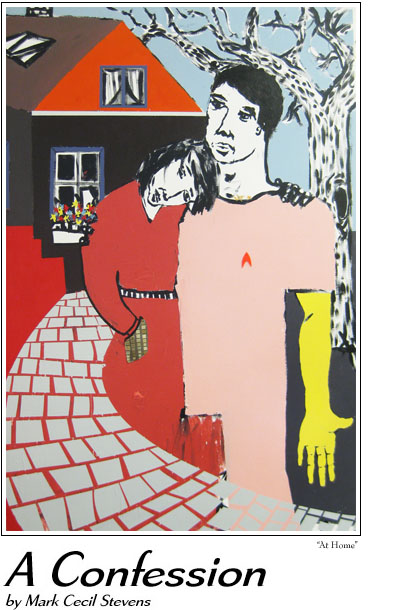
My name is Istvan Vig and I want to explain about what happened to my father, Geza. But before I get into all of that, I think that I had better help you understand him, or at least how I saw him.
My father's wisdom was questionable at best. I recognize that, but it was he who taught me everything that I know, or should I say knew, at his end. His was not a patrimonial guidance, shaping a boy in his image, nor was it a stern apprenticeship with concrete instruction. No, his attempts to guide were clumsy, faltering efforts. The uncertainty, plain in his eyes when he spoke, would have moved a man to pity, but it tended to infect me with my own confusions instead.
And the lessons that I learned bore little resemblance to those that he taught. For instance, once I referred to the Pronay Battalion, of which my father had been a member, as the White Terror, a term that I had learned in school. The ensuing beating was savage, with a nearly carnal passion that was as unbearable as the blows. I issued an involuntary apology-- a spasm, really-- and the beating ceased. My father congratulated himself thereafter on having conferred on me a sense of pride that I had lacked. And I, for my part, participated in this illusion by parroting his talk of hungarianism and by talking up my Magyar ancestry. But the real lesson that I learned was that mendacity is better than punishment. And that is a valuable lesson, regardless of the method by which one comes by it.
Of course I realize that by confessing that I am a liar I place in jeopardy the possibility that you will believe me about the boots. I think, however, that it is more important that you understand my father and my relation to him so that you can see that I was not to blame at the end.
Also, I don't want you to enjoy the misconception that my father was by nature a brutal man. I don't want you to judge him on the basis of this single maltreatment when he lost nearly all of his sense over a perceived slight to his-- or rather our-- national identity. No, it is not the case that he was an overly physical man, at least not toward me. Though I admit that he often oppressed me with the heft of his stare, and that there was a violence in that glance that moved me to a fear and dread no less powerful than the feeling that bent me in an unthinking obeisance at his feet on that one occasion, it was the only time that he touched me in anger.
His other lessons, then, were conveyed more subtly, sometimes even unknowingly. One of the most valuable skills that I learned in life I gleaned simply by observing him. My father was always a brave man, or at least possessed of a quality that he called bravery. He had a capacity to take offense coupled with a disregard for risk that found him ever in conflict or ready for it. His defeats were painful and his victories complicated by legal involvements. Regardless of the outcome, I would be called on to assist him. Either I would bear his reproaches as I nursed his wounds, or lie to the authorities in his defense. Being a practiced liar, I took the only lesson left from these episodes. I cultivated a cowardice that opposed his bravery in every aspect-- no risk became too slight for me to avoid.
That is what I find so surprising about my acquisition of the boots. On every other occasion that I had heard cannon fire I had run in the opposing direction, mind and lungs burning with panic. But on that day, a calm rose within me as clear and cold as the dawn, and I slunk to the shore of the Danube, to the source of the noise. I wonder now if I wasn't drawn by the cadence of the cannons, a martial beat too steady for the tumult of war that had only just encircled us. In any case, I climbed a tree near the bank and surveyed a scene, framed in hoary branches, of a crowd prodded into a line at the water's edge by a small cadre of soldiers. From my perch I could see the river's peaceful motion laid bare through the gaps that the cannons had cracked into the ice that stretched to the Buda shore. The soldiers order ordered the crowd out of their shoes and tied their hands one to another. There was a silence then, interrupted only by the clacking noises of the soldiers' rifles being made ready to fire and the plea of one woman in the middle of the line that they hurry and shoot her, the pain in her feet was so great. I had felt her pain all morning, perhaps even all week, as the holes in the soles of my own shoes had worn larger in December's snap. Yet my pity for her was momentarily scuttled when I saw the captain of the guards nod, and heard him counsel her in my father's voice that with patience she would have her wish.
-----
Page 1 2 3 4

